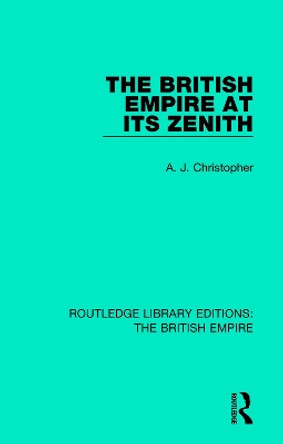Description
In 1940, Japan was into its third year of war with China, and relations with the United States were deteriorating, but it was a heady time for the Japanese nonetheless. That year, the Japanese commemorated the 2,600th anniversary of the founding of the Empire of Japan. According to the imperial myth-history, Emperor Jimmu, descended from the Sun Goddess Amaterasu, established the "unbroken imperial line" in 660 BCE. In carefully choreographed ceremonies throughout the empire, through new public monuments, with visual culture, and through heritage tourism, the Japanese celebrated the extension of imperial rule under the 124th emperor, Hirohito.
These celebrations, the climactic moment for the ideology that was central to modern Japan's identity until the imperial cult's legitimacy was bruised by defeat in 1945, are little known outside Japan. Imperial Japan at Its Zenith, the first book in English about the 2,600th anniversary, examines the themes of the celebration and what they tell us about Japan at mid-century. Kenneth J. Ruoff emphasizes that wartime Japan did not reject modernity in favor of nativist traditionalism. Instead, like Nazi Germany and Fascist Italy, it embraced reactionary modernism. Ruoff also highlights the role played by the Japanese people in endorsing and promoting imperial ideology and expansion, documenting the significant grassroots support for the cult of the emperor and for militarism.
Ruoff uses the anniversary celebrations to examine Japan's invention of a national history; the complex relationship between the homeland and the colonies; the significance of Imperial Japan's challenge to Euro-American claims of racial and cultural superiority; the role of heritage tourism in inspiring national pride; Japan's wartime fascist modernity; and, with a chapter about overseas Japanese, the boundaries of the Japanese nation. Packed with intriguing anecdotes, incisive analysis, and revelatory illustrations, Imperial Japan at Its Zenith is a major contribution to our understanding of wartime Japan.
About the Author
Kenneth J. Ruoff is Professor of History and Director of the Center for Japanese Studies at Portland State University. He is the author of The People's Emperor: Democracy and the Japanese Monarchy, 1945-1995, the Japanese translation of which was awarded the Osaragi Jiro Prize in 2004 for the best book in the social sciences published the previous year.
Reviews
Kenneth J. Ruoff has done yeoman's work in unearthing a vast array of sources and interesting anecdotes that enliven the narrative, serving up a fascinating social history that helps readers today understand what it must have been like to live in wartime Japan, an account that challenges narratives of unrelenting tribulation. His captivating book explains how tens of millions of Japanese reveled in the orchestrated jingoism of the celebrations, cheered on by the media, intellectuals and all the businesses cashing in on patriotic consumption. In doing so, he reveals the extensive web of complicity and mobilization that belies assertions Japan was hijacked into war by a small coterie of military hotheads.
-- Jeff Kingston * The Japan Times *Kenneth J. Ruoff has sifted through documents long buried in Asian libraries and postcards procured at Kyoto flea markets to produce a meticulous study of Japanese life in the 1930s and '40s. Imperial Japan at its Zenith is, like the few available accounts of present-day North Korea, alternately chilling and amusing in chronicling efforts of the state to indoctrinate and manipulate citizens.... Ruoff shows how Japan went to extremes in its colonial heyday, inventing elaborate stories glorifying its divine imperial lineage to boost patriotism and justify colonial conquest.... [This book] provides rare insights... into the way a cult of militarism can pervade a nation and propel world events. Among the book's nuggets is the fact that the Zero fighter plane, of Pearl Harbor infamy, was named for the zeros in 2,600.
-- Richard Read * The Oregonian *In terms of charismatic cult, architecture and mass mobilization, Ruoff highlights important similarities between Japanese and European fascism. In so doing, he helpfully moves the debate beyond mere definitions of fascism to think instead of comparative fascist practice-an approach that complements recent attempts to find a 'new perspective' on the histories of modern Germany, Italy and Japan.
-- Martin Dusinberre * Journal of Colonialism and Colonial History *Awards
Winner of Winner of the Herbert H. Lehman Award (New York Academy of History at Columbia University) and Winner of the Dixon Ryan Fox Manuscript Prize and Winner of the Ruth Emery Award.
Book Information
ISBN 9780801479786
Author Kenneth J. Ruoff
Format Paperback
Page Count 256
Imprint Cornell University Press
Publisher Cornell University Press
Weight(grams) 454g









